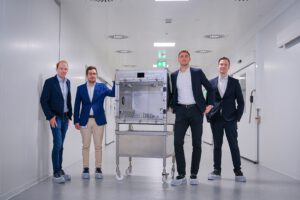OXIS Energy’s Li-S batteries achieve theoretical energy densities of 2,500–2,750 Wh/kg, far exceeding the 400–450 Wh/kg typical of lithium-ion cells. They use sulfur instead of heavy metals like cobalt and nickel, reducing weight and supply chain risks. Key features include a sulfur passivation layer to prevent thermal runaway and an organic electrolyte for stable high-temperature operation. The absence of cobalt, manganese, nickel, and copper lowers environmental impact and leverages abundant, cost-effective sulfur.
Led the ALISE project targeting 400–500 Wh/kg Li-S cells for BEVs and PHEVs with partners including Leitat and SEAT; co-developed 400 Wh/kg Li-S cells in the REVB project funded by Innovate UK with Imperial College London, Cranfield University, and Ricardo; joint development with Arkema on advanced materials; collaborations with Bayer MaterialScience for EV performance; manufacturing agreement with GP Batteries; partnership with Safran for aviation battery systems; solar energy storage integration with UK PV manufacturers; supported by grants from the Faraday Institution and Innovate UK.
Oxis Energy Ltd has been backed by Sasol Technology, Oxford Technology VCT, Hazel Capital, Aerotec Fund, CODEMIG (Minas Gerais), Safran Corporate Ventures and Arkema, with a notable £15M investment from Sasol New Energy in 2012. Its assets and IP are now owned by Johnson Matthey.
















